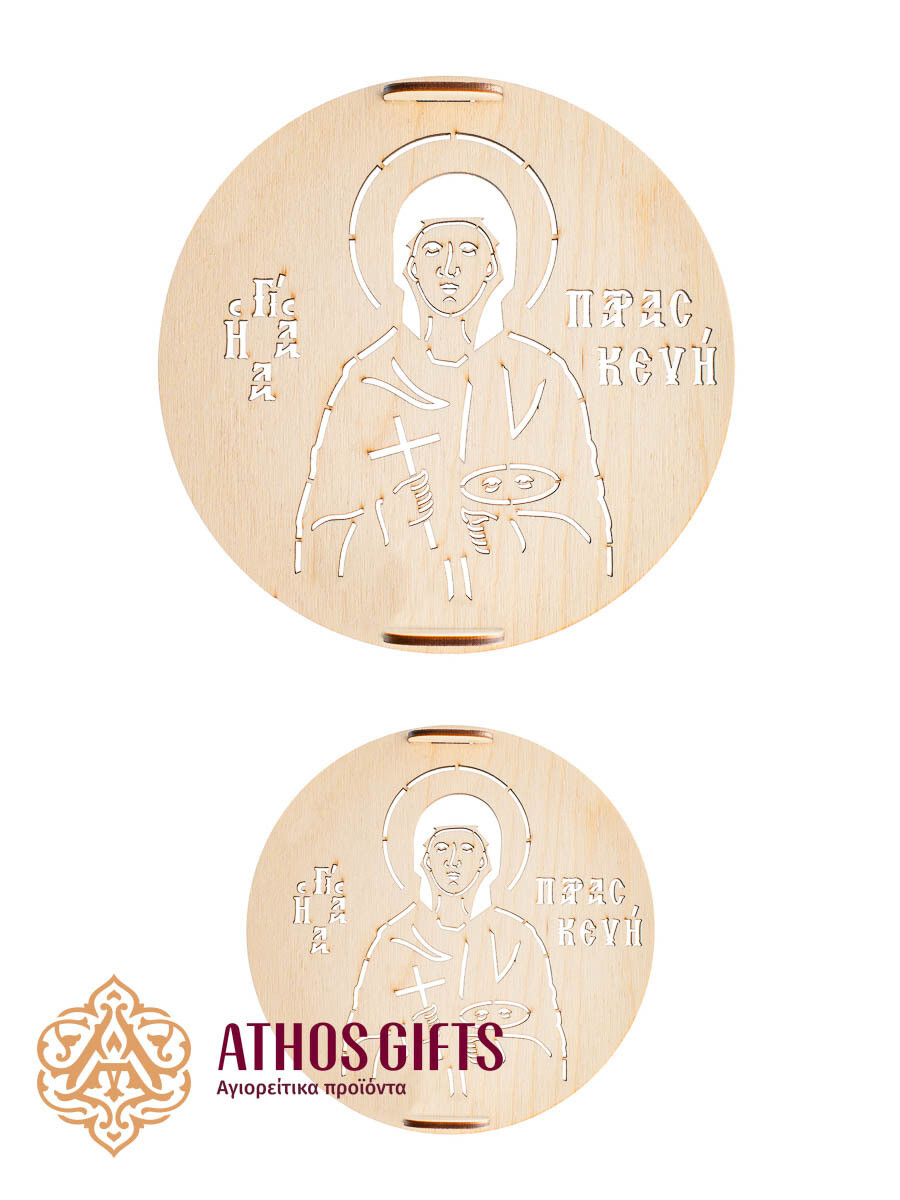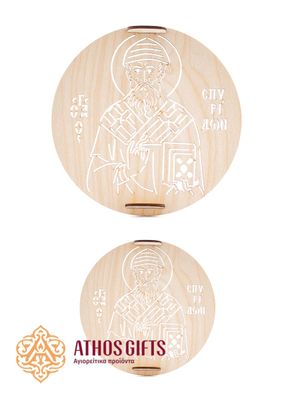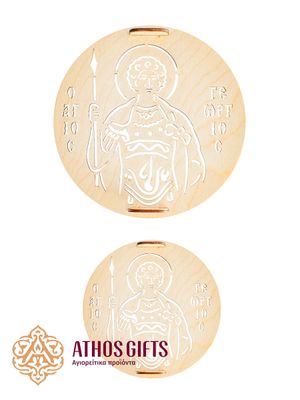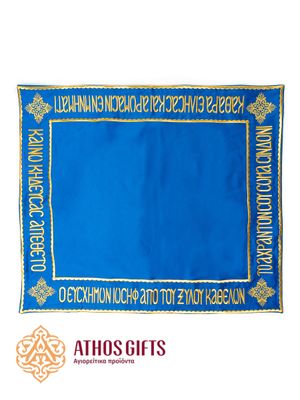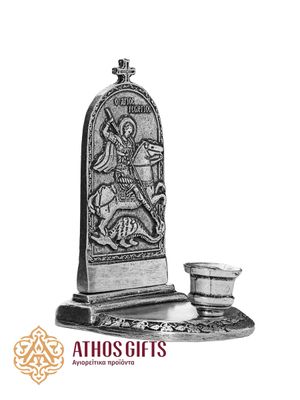Seal for Koliva Saint Paraskevi
Koliva
Koliva (kollyva, kollyba, or kolyvo) is a dish made of whole-grain wheat. Sometimes barley, millet, or rice are used instead. Another ingredients of the koliva are sugar or honey, as well as nuts, dried fruits, breadcrumbs, sesame seeds and pomegranate. The top of the koliva is sometimes decorated with white or silver colored candies.
Each ingredient of koliva has its own symbolic meaning. Wheat grains symbolize a person who, much like a grain, is a child of the earth. We lie down in the earth in order to rise again to eternal life by Lord's mercy. Honey and sugar symbolize the sweetness of Heaven. Raisins represent Jesus Christ, who is the True Vine. The pomegranate symbolizes the splendor and grace of Heaven. Nuts are life, which prolongs itself. Finally, white candy symbolizes bones, which, unlike corruptible flesh, remain unchanged.
How to use
Cover the surface of the koliva with powdered sugar. Then place a seal on top, in the center of the dish. Sprinkle cinnamon in order to capture the pattern of the seal. Finally, remove the seal as carefully as possible, in order to not disturb the pattern.
Saint Paraskevi of Rome
Saint Paraskevi of Rome is the protector of the eyes and helper in the fight against any ailment. She was born in Rome during the reign of Emperor Antoninus Pius. The name Paraskevi was given to her based on the day of her birth ("Paraskevi" translates from Greek as "Friday").
Her upbringing from an early age was based on strict Christian principles. At the age of 20, the girl was orphaned, losing both of her parents. Her family was wealthy, so after her parents' death, Paraskevi inherited a significant estate, which she donated to the poor and sick.
Saint Paraskevi actively participated in missionary activities in Rome and other regions, teaching Christianity to the poor and children from socially disadvantaged families. Emperor Antoninus asked her to renounce her religion and, in an attempt to persuade her, offered various rewards. However, Paraskevi remained steadfast in her faith, for which she was subjected to torture and imprisonment. Subsequently, Paraskevi endured numerous trials and suffered for her faith. Seeing her steadfastness, as well as numerous miracles that were revealed during tortures and attempts to kill St. Paraskeva, many converted to Christianity. Finally, the saint was martyred by beheading.
Subsequently, Paraskevi endured numerous trials and suffered for her faith, but many converted to Christianity thanks to her. Finally, she met a martyr's death through beheading.
The Eastern Orthodox Church honors the name and memory of Saint Paraskevi on July 26th.
